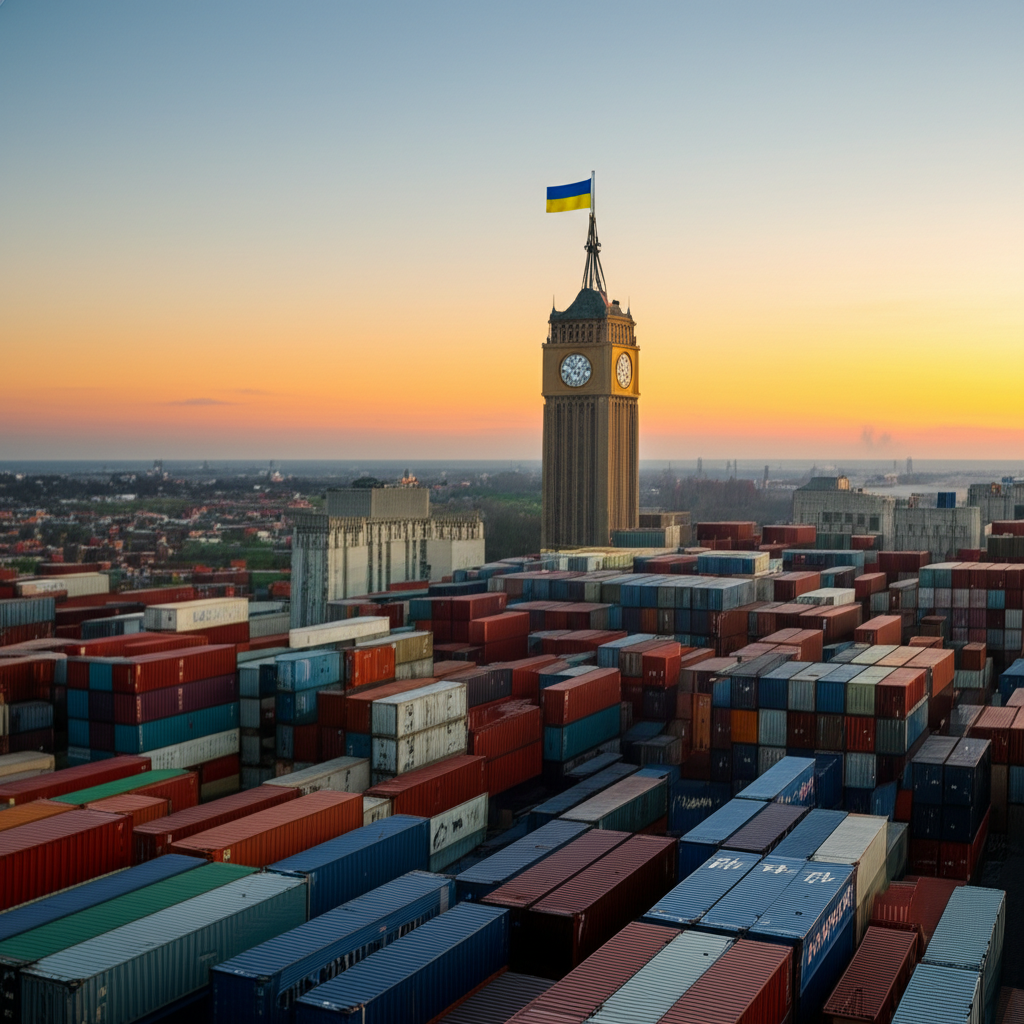War Risk Insurance Premiums Surge Amid Ukraine, Middle East Unrest

LONDON – War risk insurance premiums are soaring to unprecedented levels as geopolitical tensions escalate in Ukraine and the Middle East, placing a significant burden on shipping companies, traders, and ultimately, consumers
Background
Shipping companies and traders are now facing substantially higher costs to insure their vessels and cargo against potential attacks, mines, piracy, and other conflict-related perils
Some routes have seen increases of up to 1000% since early 2022, adding further strain to already fragile global supply chains.
The dramatic spike in premiums underscores the tangible and growing threat to global trade routes and energy supplies, impacting a vast array of goods and services, from consumer staples to critical infrastructure componentsThis situation serves as a stark reminder of the interconnectedness of global markets and their inherent vulnerability to regional instabilityThe ripple effects are being felt across the globeThe insurance industry is reacting swiftly to the heightened risks, and businesses are under pressure to adapt rapidly to navigate these turbulent waters or risk potentially catastrophic financial lossesWar risk insurance, a specialized form of marine insurance, covers losses resulting from acts of war, terrorism, piracy, and other politically motivated violenceTraditionally, these policies primarily covered vessels transiting known high-risk areas, such as the Strait of Hormuz or the Gulf of AdenHowever, the ongoing conflict in Ukraine and the escalating tensions between Israel and Hamas, alongside the involvement of other regional players in the Middle East, have significantly expanded the geographic scope of these risksThe Black Sea, a crucial waterway for grain exports, has become exceedingly dangerous, while growing concerns over potential disruptions to oil shipments through the Red Sea further compound the problemThe initial outbreak of conflict in Ukraine triggered an immediate and widespread reassessment of risk across the entire insurance market, resulting in a period of intense uncertaintyThe initial shock of the Ukraine war led many insurers to temporarily suspend coverage in the immediate conflict zone
This was followed by a gradual re-entry into the market, but with significantly increased premiums reflecting the elevated risk profileSimultaneously, the situation in the Middle East, already considered high-risk, has witnessed further escalation following attacks on commercial vessels and increased regional tensionsThis has further pushed up the cost of insurance and made underwriters increasingly hesitant to provide coverage at allSome are even declining coverage outrightCurrently, premiums for vessels operating in the Black Sea and the Red Sea have risen dramatically
In some extreme cases, insurers are charging daily premiums, reflecting the highly volatile and unpredictable nature of the risks involvedThese "floating" premiums can change at a moment's notice based on the evolving security landscapeInsurers have also begun to implement stricter exclusions, specifically related to the use of certain ports or passage through specific waterways deemed too dangerousThis is impacting not only shipping companies, who are forced to reroute or delay shipments, but also end consumers who ultimately bear the increased costs through higher prices for goods and servicesLloyd's of London, a major and influential player in the global marine insurance market, has issued several advisories to its members, warning of heightened risks and urging careful and continuous assessment of individual voyagesOther major insurance hubs, such as Singapore and Bermuda, are facing similar pressures, further tightening the market"The increased demand for war risk coverage has also placed a significant strain on the capacity of the insurance market, leading to further price increases and limited availability
We are seeing unprecedented levels of uncertainty in the marine insurance market," said John Smith, a leading maritime insurance broker at ABC Insurance Group. "The combination of the Ukraine conflict and Middle East tensions has created a perfect storm, driving up premiums and making it increasingly difficult for businesses to secure adequate coverage.
The rising cost of war risk insurance has far-reaching consequences for global trade and the economy, creating a domino effect that impacts various stakeholders. Higher shipping costs translate directly into increased prices for consumers, exacerbating existing inflationary pressures and impacting household budgets.
Key impacts include:Shipping Companies: Reduced profitability due to higher operating costs, forced route adjustments to avoid high-risk areas, and potential for shipment delays leading to missed deadlines and penalties
Traders: Higher costs of goods, increased difficulty in securing financing due to the higher risk profile, and an increased risk of losses due to potential disruptions or confiscations
Consumers: Increased prices for essential goods and services, potentially impacting access to vital commodities and contributing to overall cost-of-living increases
Global Economy: Disrupted supply chains, increased inflationary pressures, and potential for slower economic growth as businesses struggle to adapt to the higher costs and increased risks
The surge in insurance costs is also forcing companies to reconsider their established shipping routes, potentially leading to longer transit times and increased fuel consumption, further adding to costs and environmental concernsSome companies may even choose to avoid high-risk areas altogether, further disrupting supply chains and negatively impacting regional economies that rely on maritime tradeThe outlook for war risk insurance remains highly uncertain, heavily dependent on ongoing and future geopolitical developments
